 Darwin's work
Darwin's workReluctant, Reclusive, & Reviled Revolutionary
How does Darwin's work influence our lives?
- Drugs and drug resistant bacteria,
- understanding nature -- our partner for life,
- from the perspective of terminal disease to relieve suffering,
and of the wonder that is the diversity of life.
life | Voyage of the Beagle | books | eyes | interdependence | Origins release & reception | Origin
- February 12, 1809 - in Shrewsbury, England
- April 19, 1882 - in Down House, England
Emma Wedgwood Darwin
Three of their ten children died before adolescence.
life | Voyage of the Beagle | books | eyes | interdependence | Origins release & reception
Of himself he revealed that:
“…it is curious as showing that apparently I was interested at this early age in the variability of plants! I told another little boy (I believe it was Leighton,1 who afterwards become a well-known Lichenologist and botanist) that I could produce variously coloured Polyanthuses and Primroses by watering them with certain coloured fluids, which was of course a monstrous fable, and had never been tried by me. I may here also confess that as a little boy I was much given to inventing deliberate falsehoods, and this was always done for the sake of causing excitement.”
Charles Darwin, Autobiography, p. 23.
‘I do not think I hardly ever admired a book more than Paley’s Natural Theology. I could almost formerly have said it by heart.’
life | Voyage of the Beagle | books | eyes | interdependence | Origins release & reception
The Voyage of the 'Beagle'
From December 27, 1831, To October 2, 1836.
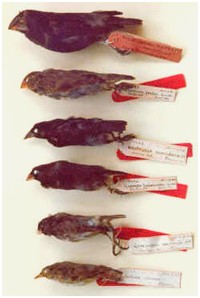 Fifthly, there are three species of mocking-thrush—a form highly characteristic of America. The remaining land-birds form a most singular group of finches, related to each other in the structure of their beaks, short tails, form of body, and plumage:"
Fifthly, there are three species of mocking-thrush—a form highly characteristic of America. The remaining land-birds form a most singular group of finches, related to each other in the structure of their beaks, short tails, form of body, and plumage:"
p. 379.
But it is the circumstance, that several of the islands possess their own species of the tortoise, mocking-thrush, finches, and numerous plants, these species having the same general habits, occupying analogous situations, and obviously filling the same place in the natural economy of this archipelago, that strikes me with wonder.It may be suspected that some of these representative species, at least in the case of the tortoise and of some of the birds, may hereafter prove to be only well-marked races; but this would be of equally great interest to the philosophical naturalist.
Darwin, C. R. 1845. Journal of researches into the natural history and geology of the countries visited during the voyage of H.M.S. Beagle round the world, under the Command of Capt. Fitz Roy, R.N. 2d edition. London: John Murray. p. 397.
"If, therefore, we except the eighteen marine, the one fresh-water, and one land-shell, which have apparently come here as colonists from the central islands of the Pacific, and likewise the one distinct Pacific species of the Galapageian group of finches, we see that this archipelago, though standing in the Pacific Ocean, is zoologically part of America.
If this character were owing merely to immigrants from America, there would be little remarkable in it; but we see that a vast majority of all the land animals, and that more than half of the flowering plants, are aboriginal productions. It was most striking to be surrounded by new birds, new reptiles, new shells, new insects, new plants, and yet by innumerable trifling details of structure, and even by the tones of voice and plumage of the birds, to have the temperate plains of Patagonia, or the hot dry deserts of Northern Chile, vividly brought before my eyes. Why, on these small points of land, which within a late geological period must have been covered by the ocean, which are formed of basaltic lava, and therefore differ in geological character from the American continent, and which are placed under a peculiar climate,—why were their aboriginal inhabitants, associated, I may add, in different proportions both in kind and number from those on the continent, and therefore acting on each other in a different manner—why were they created on American types of organization?
p. 393
life | Voyage of the Beagle | books | eyes | interdependence | Origins release & reception
He wrote 19 books, but his most famous and historic work
On the Origin of Species was published in 1859 when he was exactly 50 years old.
"Whatever the cause may be of each slight difference in the offspring from their parents -- and a cause for each must exist -- it is the steady accumulation; through natural selection, of such differences, when beneficial to the individual, that gives rise to all the more important modifications of structure, by which the innumerable beings on the face of this earth are enabled to struggle with each other, and the best adapted to survive."
(170)
life | Voyage of the Beagle | books | eyes | interdependence | Origins release & reception
To suppose that the eye, with all its inimitable contrivances for adjusting the focus to different distances, for admitting different amounts of light, and for the correction of spherical and chromatic aberration, could have been formed by natural selection, seems, I freely confess, absurd in the highest possible degree. Yet reason tells me, that if numerous gradations from a perfect and complex eye to one very imperfect and simple, each grade being useful to its possessor, can be shown to exist; if further, the eye does vary ever so slightly, and the variations be inherited, which is certainly the case; and if any variation or modification in the organ be ever useful to an animal under changing conditions of life, then the difficulty of believing that a perfect and complex eye could be formed by natural selection, though insuperable by our imagination, can hardly be considered real. How a nerve comes to be sensitive to light, hardly concerns us more than how life itself first originated; but I may remark that several facts make me suspect that any sensitive nerve may be rendered sensitive to light, and likewise to those coarser vibrations of the air which produce sound."
[page] 186-187.
life | Voyage of the Beagle | books | eyes | interdependence | Origins release & reception
MUTUAL CHECKS TO INCREASE. CHAP. III.
I am tempted to give one more instance showing how plants and animals, most remote in the scale of nature, are bound together by a web of complex relations. I shall hereafter have occasion to show that the exotic Lobelia fulgens, in this part of England, is never visited by insects, and consequently, from its peculiar structure, never can set a seed. Many of our orchidaceous plants absolutely require the visits of moths to remove their pollen-masses and thus to fertilise them. I have, also, reason to believe that humble-bees are indispensable to the fertilisation of the heartsease (Viola tricolor), for other bees do not visit this flower. From experiments which I have tried, I have found that the visits of bees, if not indispensable, are at least highly beneficial to the fertilisation of our clovers; but humble-bees alone visit the common red clover (Trifolium pratense), as other bees cannot reach the nectar. Hence I have very little doubt, that if the whole genus of humble-bees became
extinct or very rare in England, the heartsease and red clover would become very rare, or wholly disappear. The number of humble-bees in any district depends in a great degree on the number of field-mice, which destroy their combs and nests; and Mr. H. Newman, who has long attended to the habits of humble-bees, believes that "more than two thirds of them are thus destroyed all over England." Now the number of mice is largely dependent, as every one knows, on the number of cats; and Mr. Newman says, "Near villages and small towns I have found the nests of humble-bees more numerous than elsewhere, which I attribute to the number of cats that destroy the mice." Hence it is quite credible that the presence of a feline animal in large numbers in a district might determine, through the intervention first of mice and then of bees, the frequency of certain flowers in that district!
pp. 73-74.
life | Voyage of the Beagle | books | eyes | interdependence | Origins release & reception
Reluctant:
The speculation as to why he waited so long to publish his ideas on the origin of species following the return from his voyage in 1836, is also addressed – if obtusely – in his autobiography and letters.
He went out of his way to keep himself and his family away from controversy, even delaying publication of his Origin of Species and putting in theistic statements in order to lessen the offense he feared it would cause.
fears
"At last gleams of light have come, and I am almost convinced (quite contrary to the opinion I started with) that species are not ( it is like confessing a murder ) immutable. . . . species become exquisitely adapted"
Darwin to Joseph Hooker
January 1844
Hardin, pp. 42-43.
life | Voyage of the Beagle | books | eyes | interdependence | Origins release & reception
Alfred Russel Wallace manuscript 1858 and 1857 correspondence.
Wallace wrote of species and their "perfect adaptation to the conditions of existence" in his 1858 essay "On the Tendency of Varieties to depart indefinitely from the Original Type," which he sent to Mr. Darwin.
Bishop Wilberforce -- Thomas Huxley Debate in Oxford, 6-30-1860.
Thomas Henry Huxley, "Darwin's bull dog."
Samuel Wilberforce was the third son of William Wilberforce, the antislavery advocate and philanthropist. (Clark, p. 141)
There is no verbatim account of what the two men said, but recollections agree that Wilberforce ended by extemporaneously asking Huxley:
Sir, from which side of your family; the paternal or maternal grandparents do you trace your descent from the ape?
(Hardin, 92-96; Clark, pp. 141-148.).
In 1871 his book The Descent of Man was published, in which he argued that humans were no different from all other forms of life, and that we too, in our evolutionary history, have been influenced by the forces of sexual and natural selection.
"the brain of an ant is one of the most marvelous atoms of matter in the world."
And of so many other observed natural facts Darwin wrote"which are so obscure, that we stand in awe before the mystery of life."
The Expression of the Emotions in Man and Animals, published in 1872, was where Darwin dared to claim that most of our refined and most particularly human behavior -- the expression of our emotions -- reflected our common descent from shared ancestors with animals.
Great pain urges all animals, and has urged them during endless generations, to make the most violent and diversified efforts to escape from the cause of suffering. . . . Sailors who are going to be flogged sometimes take a piece of lead into their mouths, in order to bite it with their utmost force, and thus to bear the pain. Parturient women prepare to exert their muscles to the utmost in order to relieve their sufferings.
p. 72.
"With mankind some expressions, such as the bristling of the hair under the influence of extreme terror, or the uncovering of the teeth under that of furious rage, can hardly be understood, except on the belief that man once existed in a much lower and animal-like condition."
p. 12
life | Voyage of the Beagle | books | eyes | interdependence | Origins release & reception
Reclusive,
Another important theme is Darwin's desire to be a respectable gentleman.
He married Emma Wedgwood, January 29, 1839, his cousin.
upon returning to England he withdrew from life.
“This was owing to frequently recurring unwellness, and to one long and serious illness.”
“Nor did I ever intermit collecting facts bearing on the origin of species; and I could sometimes do this when I could do nothing else from illness.”
"Few persons can have lived a more retired life than we have done. Besides short visits to the houses of relations, and occasionally to the seaside or elsewhere, we have gone nowhere.
During the first part of our residence we went a little into society, and received a few friends here; but my health almost always suffered from the excitement, violent shivering and vomiting attacks being thus brought on.
Charles Darwin, Autobiography, p.
After the Beagle voyage, nausea, intense vomiting and retching, symptoms of a chronic illness that tormented him for the last 40 years of his life.
life | Voyage of the Beagle | books | eyes | interdependence | Origins release & reception
Reviled
There was a progression of Darwin's religious beliefs.
1851 at his daughter Annie’s death he lost his faith in an divine hand in design Darwin's journey was a steady slide from a marginally Christian mixture of Anglicanism and Unitarianism to agnosticism hostile to Christian doctrine.
This slide seems to have had little to do with his scientific work; the main factor was what he called the "damnable doctrine" of eternal punishment for nonbelievers.
Darwin had "moved with the times to a polite agnosticism."
Thomas Carlyle referred to evolution as “the gospel of dirt.”
Richard Owen contested Darwin's assumption that humans were descended from a common ancestry with the simian line (monkeys and apes). Owen advised Wilberforce and encouraged Samuel Wilberforce's serious critique of Darwin's theory of common descent calling it "the degrading notion of brute origin of him who was created in the image of God."
Adam Sedgwick, Darwin's teacher, friend, later colleague, cleric and naturalist said to Darwin that parts of the origin were, "utterly false" . . . and grievously mischievous."
In a letter to Darwin he wrote, "I have read your book with more pain than pleasure."
(Hardin, pp. 100-101).
Darwin’s alleged deathbed conversion in 1881, was a story by Lady Hope. The striking theme of this story is the way that everybody has tried to exploit Darwin.
Lady Hope wove a story out of her visit that made Darwin into a Christian at the end of his life, which he almost certainly was not. Others who don’t seem to mind bearing false witness as long as the result serves their purpose have further distorted her story.
life | Voyage of the Beagle | books | eyes | interdependence | Origins release & reception
For Example:
Alfred Lord Tennyson’s In Memorium. 1850
- Are God and Nature then at strife,
- that Nature lends such evil dreams
- So careful of the type she seems, so careless of the single life.
- Who trusted God was love indeed, and love
- Creation's final law –
- Tho Nature, red in tooth and claw,
- with ravine shrieked against his creed.
Alfred Lord Tennyson’s popular poem of the Victorian era mourns the death of a friend.
Tennyson evoked a mood of despair by drawing from images of natural history, the debate over evolution, and the heartlessness of an eat or be eaten scenario of the natural world. In mourning the death of a friend Tennyson created a mood of despair by drawing from images of natural history, the debate over evolution, and the heartlessness of an eat or be eaten scenario of the natural world.
His last words, spoken to his wife Emma, mother of their ten children and his cousin, were in actuality, "I am not in the least afraid to die."
life | Voyage of the Beagle | books | eyes | interdependence | Origins release & reception
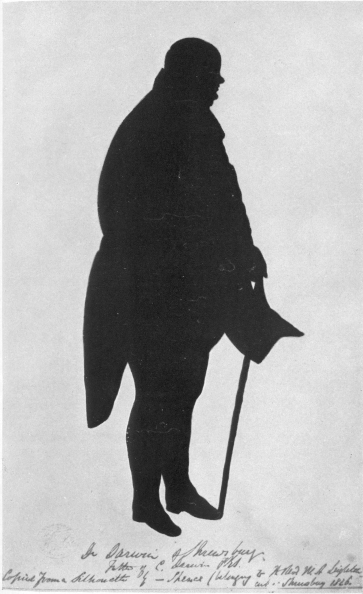 Tennyson
Tennyson
- LV.
- The wish, that of the living whole
- No life may fail beyond the grave,
- Derives it not from what we have
- The likest God within the soul?
- Are God and Nature then at strife,
- That Nature lends such evil dreams?
- So careful of the type she seems,
- So careless of the single life;
- That I, considering everywhere
- Her secret meaning in her deeds,
- And finding that of fifty seeds
- She often brings but one to bear,
- I falter where I firmly trod,
- And falling with my weight of cares
- Upon the great world’s altar-stairs
- That slope thro’ darkness up to God,
- I stretch lame hands of faith, and grope,
- And gather dust and chaff, and call
- To what I feel is Lord of all,
- And faintly trust the larger hope.
- LVI
- Man, her last work, who seem’d so fair,
- Such splendid purpose in his eyes,
- Who roll’d the psalm to wintry skies,
- Who built him fanes of fruitless prayer,
- Who trusted God was love indeed
- And love Creation’s final law–
- Tho’ Nature, red in tooth and claw
- With ravine, shriek’d against his creed.
"I do not think I hardly ever admired a book more than Paley’s Natural Theology. I could almost formerly have said it by heart."
versus
Humans "completed an otherwise, 'unfinished' landscape" of which we inherently are part of and participants in -- not apart from -- what "we stand in awe" of "before the mystery of life."
"Ignorance is not strength."
Stephen J. Gould, The Structureof Evolutionary Thought, p. 466.
his life | Voyage of the Beagle | books | eyes | web of interdependence | Origins release & reception
Date: April 12, 2008.
Written and complied by Joseph Siry for the
Twentieth Anniversary talk on Darwin
for the Master of Liberal Studies Program
at Rollins College, Winter Park, Florida.

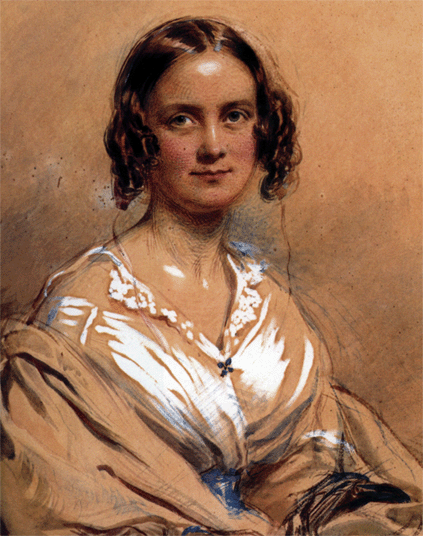
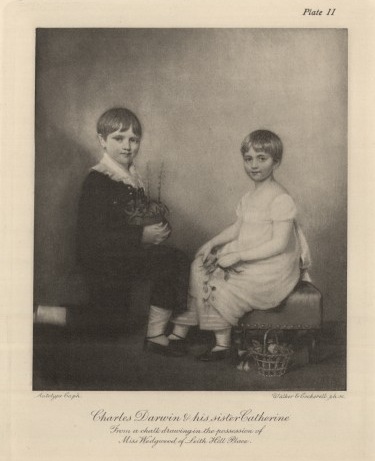
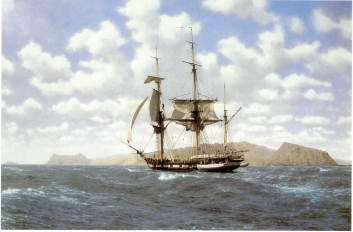
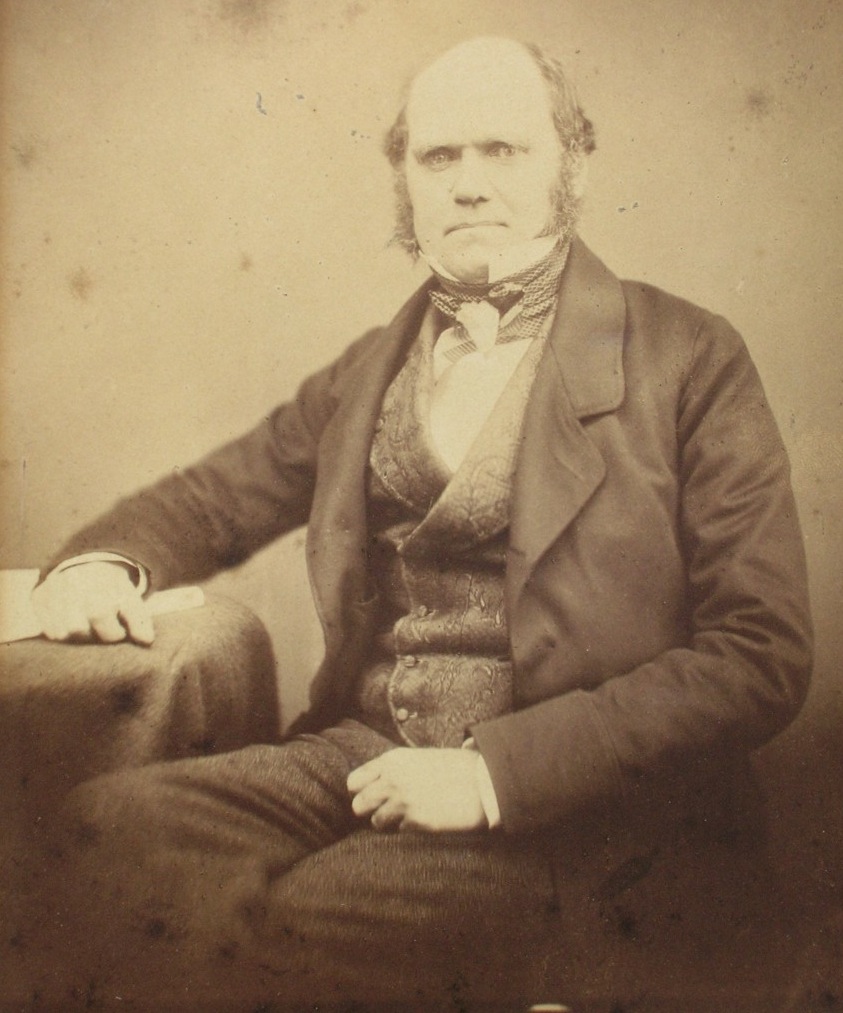
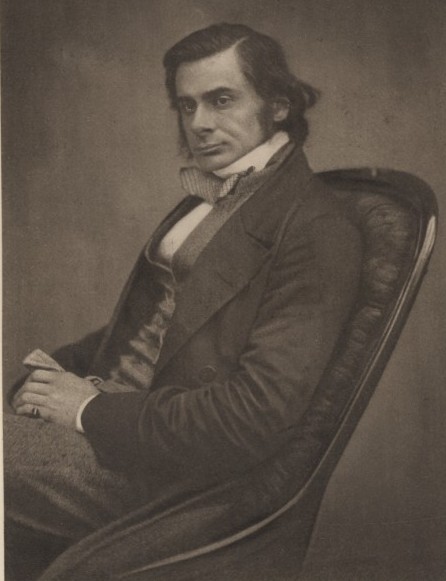
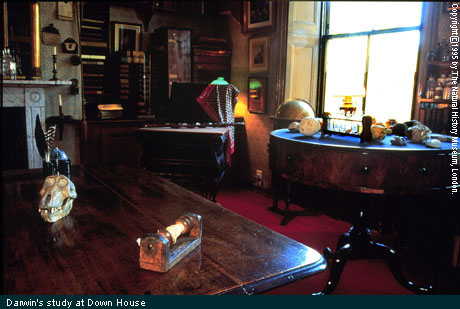
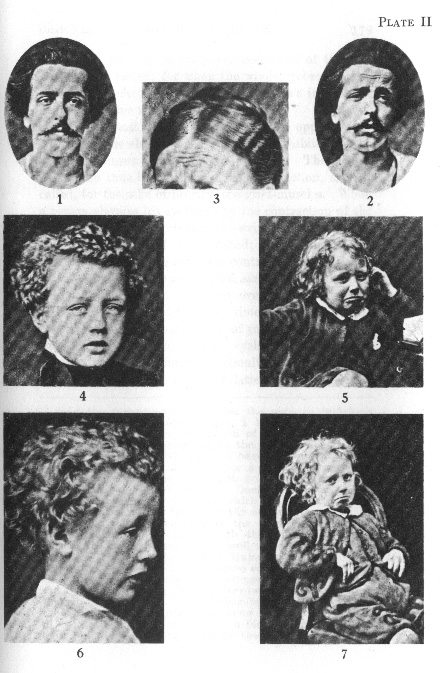
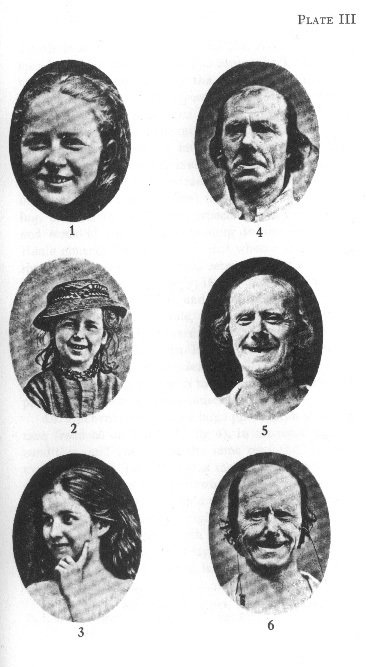

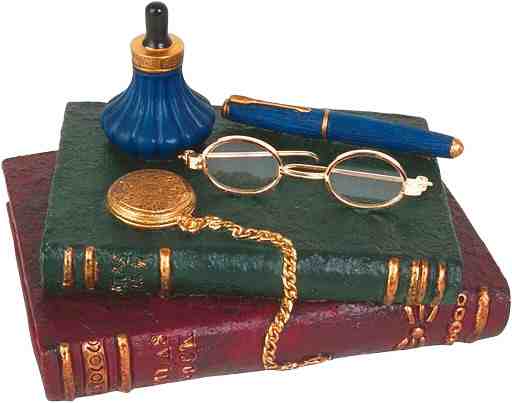 study of the Origin guide
study of the Origin guide 